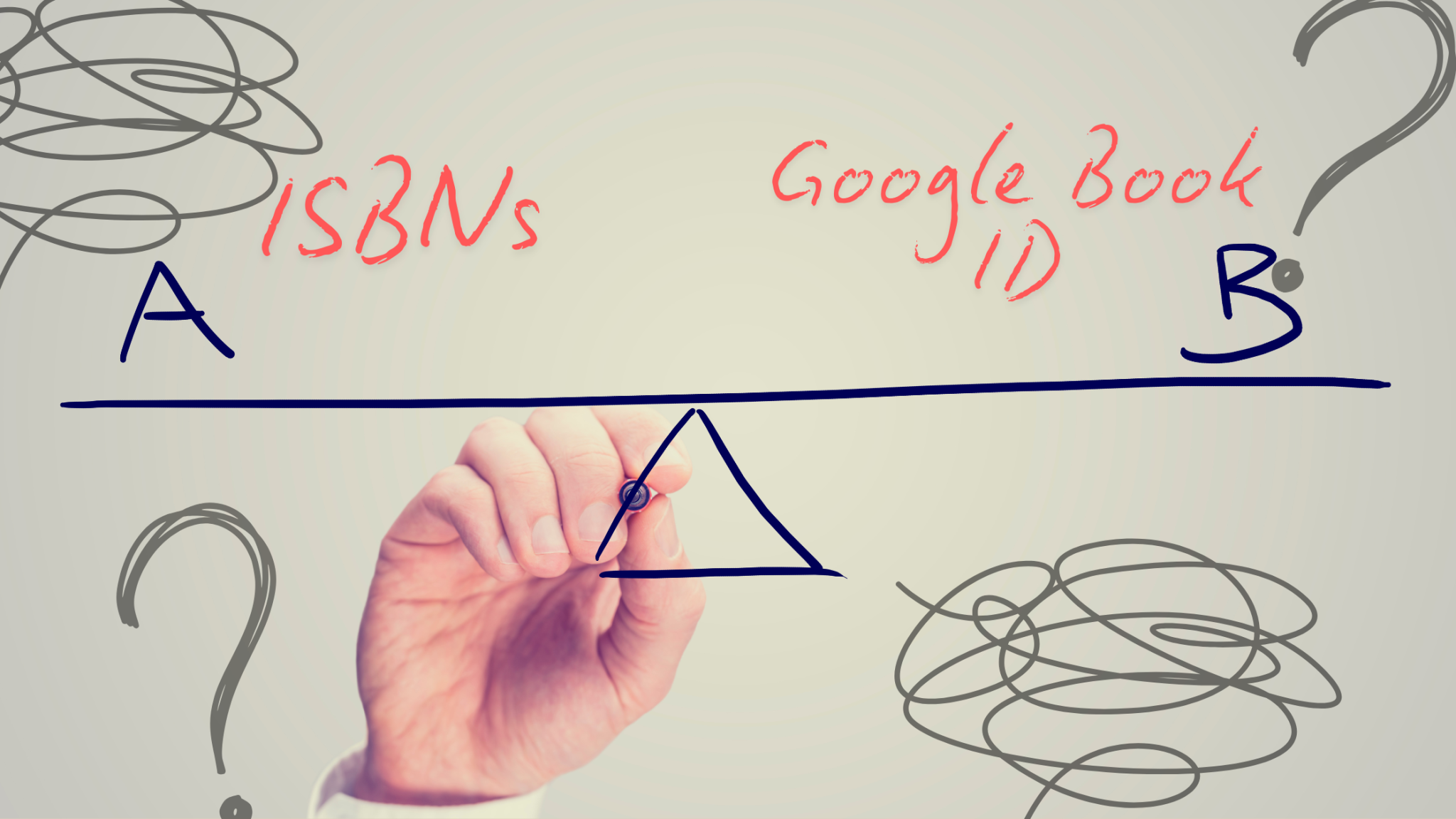
In today’s world of digital books, online catalogs, and global distribution, it’s easy to get lost in the alphabet soup of publishing identifiers. Two codes you’re likely to encounter are the ISBN and the Google Book ID. At a glance, they may seem like they do the same thing, identify a book. But if you’re a self-published author, a librarian, a bookseller, or even a reader trying to share or cite a title, understanding the difference between the two is more important than it might appear.
Let’s break down what sets them apart, why each one exists, and when it actually matters to use the right one.
Imagine walking into a bookstore that has 10,000 titles, no system, no catalog, just books stacked by size. That’s the reality we’d face without proper identifiers.
Identifiers help the publishing world keep track of books. They’re used for distribution, sales, cataloging, marketing, citations, and more. But not all identifiers are created equal. Some are industry standards, while others serve a more platform-specific purpose.
That’s where ISBNs and Google Book IDs come into play. They both identify books, but in very different ways and for very different audiences.

An ISBN, short for International Standard Book Number, is the publishing world’s gold standard for identifying books. It’s a unique 13-digit code assigned to each edition and format of a book.
If your paperback has an ISBN, your hardcover needs a different one. Got an audiobook? That’s another ISBN. The idea is to make each product version trackable and distinguishable.
ISBNs are required by:
They’re issued by official agencies (like ISBN Services in the U.S.), and they travel with your book wherever it goes, through sales platforms, catalogs, and citation databases. No ISBN, no entry into most retail and library systems.
On the other hand, a Google Book ID is an internal code that Google assigns when your book is added to the Google Books database. It allows Google to reference and manage your title within their platform.
This ID shows up in the book’s Google Books URL, something like:
bash
CopyEdit
https://books.google.com/books?id=OIPXDwAAQBAJ
The part after id= is the Google Book ID.
Unlike the ISBN:
Google Book IDs are useful when linking to a book preview, embedding a widget, or using the Google Books API, but that’s where their role begins and ends.
|
Feature |
ISBN |
Google Book ID |
| Purpose | Global identifier for books | Internal ID for Google Books |
| Issuer | National ISBN agencies | |
| Format | 13-digit number (e.g., 978-3-16-148410-0) | Alphanumeric string (e.g., OIPXDwAAQBAJ) |
| Scope | Used across all platforms and institutions | Limited to Google Books |
| Uniqueness | Unique per edition/format | May vary by version or upload source |
| Required for | Retail, libraries, academic systems | Google Books indexing and links |
| Metadata Support | Connects to global bibliographic systems | Uses Google’s metadata only |
| Recognition | Industry standard | Platform-specific |
In short: if you’re publishing professionally, you need an ISBN. It’s not just a number, it’s your book’s passport into the wider world.
But remember: Google Book IDs only work inside Google. They’re not substitutes for ISBNs.
At first glance, you might think, “Why not just use the Google ID?” The reason is simple: distribution reach and data accuracy.
ISBNs power the infrastructure of the publishing industry. They connect your book to supply chains, academic systems, citation engines, library catalogs, and worldwide metadata directories. Google Book IDs, while convenient, are limited to one platform, and your book won’t be taken seriously outside that platform without an ISBN.
Another issue? Discoverability. ISBNs boost your visibility across search engines, retail sites, and databases. If you’re serious about reach, sales, or citations, you can’t afford to ignore the ISBN.
ISBNs and Google Book IDs might seem like two sides of the same coin, but in reality, they live in entirely different worlds. An ISBN is your book’s universal identity across borders, platforms, and formats. A Google Book ID is a convenient tool that helps your book function within Google’s walls.
For authors, publishers, and anyone navigating today’s hybrid print-digital publishing environment, understanding the role of each identifier isn’t just helpful, it’s strategic.
Use both, use them wisely, and give your book the foundation it needs to be discovered by anyone, anywhere.
Yes. A single title might have multiple Google Book IDs if different sources upload it or appear in various formats.
No, but supplying an ISBN improves your metadata and searchability within Google and beyond.
Visit your book’s page on Google Books. The alphanumeric string in the URL, after ‘id=’, is your Google Book ID.
No. Once assigned, an ISBN is permanently tied to that specific format and edition. Reusing it causes confusion and is strongly discouraged.
Technically, yes. But your book will face major visibility and distribution limitations, especially outside niche or personal networks.
